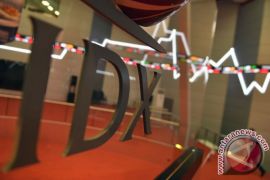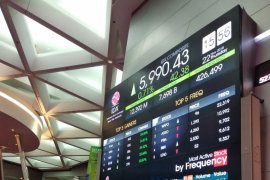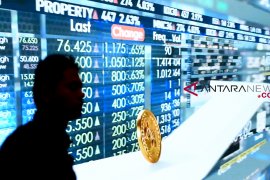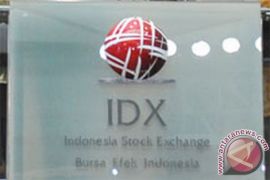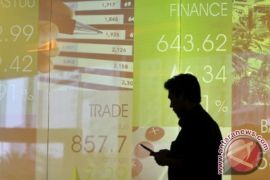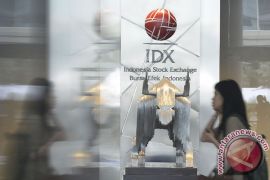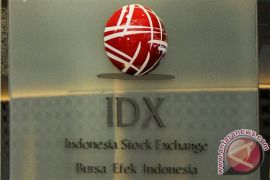It was a rare view, it shows that investors still trust the government and the stock market."Jakarta (ANTARA News) - Last weeks Jakarta bomb threat did not affect investors on the Indonesian stock market, as the Jakarta Composite Index (IHSG) remained stable due to its strong supporting infrastructure.
"The Indonesian Stock Exchanges strong infrastructure calmed investors, assuring them they could invest efficiently and safely in the stock market. So the stock market is ready to face any terrible circumstances," said the markets President Director, Tito Sulistio, during a press conference here Monday.
Tito said that during the bomb threat on Thursday (Jan 14), the markets condition remained normal, which reflects that investors were not afraid of the incident.
"The markets index fell 1.79 percent when the bomb threat took place, but regained its losses as security personnel took control of the situation. It was a rare view, it shows that investors still trust the government and the stock market," he said.
Besides infrastructure factors, most of the companies recorded positive performances in 2015, which is another supporting factor in the markets composite index.
"Most of the domestic issuers positive performances have increased investors trust, assuring them to continue investing in the stock market and prevented the index from falling further," Tito said.
The Jakarta Composite Indexs listing in the stock market on January 15, 2016 was corrected 1.5 percent to 4,523.98 points year to date, as the external stock market has risen higher than its three percent.
"The Stock Exchange of Thailand (SET) Index fell 3.27 percent, Malaysia (KLCI Index) fell 3.78 percent, US exchanges (INDU Index) fell 8.25 percent, while the largest stock exchange decline was experienced by China (SHCOMP Index), when weakened to 18.03 per cent per on January 15 this year," said Tito Sulistio.
Tito noted that factors that affect the Indonesian Stock Exchanges index movement since early 2016 has included the continuing projection of a global economic slowdown, as China remains the indicator of a world economic slowdown.
Then, the downward trend in world crude oil prices continued due to the lifting of Iranian economic sanctions.
The lifting of the sanctions will further increase the availability of abundant global crude oil and continue to depress prices.
"Low energy prices have implications on the decline in prices of other global world goods and reducing state fiscal revenues," Tito said.
Further, the normalization policy of the US central banks (The Fed) interest benchmark rate is expected to lead the markets anticipation about future investment decision developments.
(T.A050/Uu.INE/KR-BSR/H-YH)
Editor: Priyambodo RH
Copyright © ANTARA 2016




